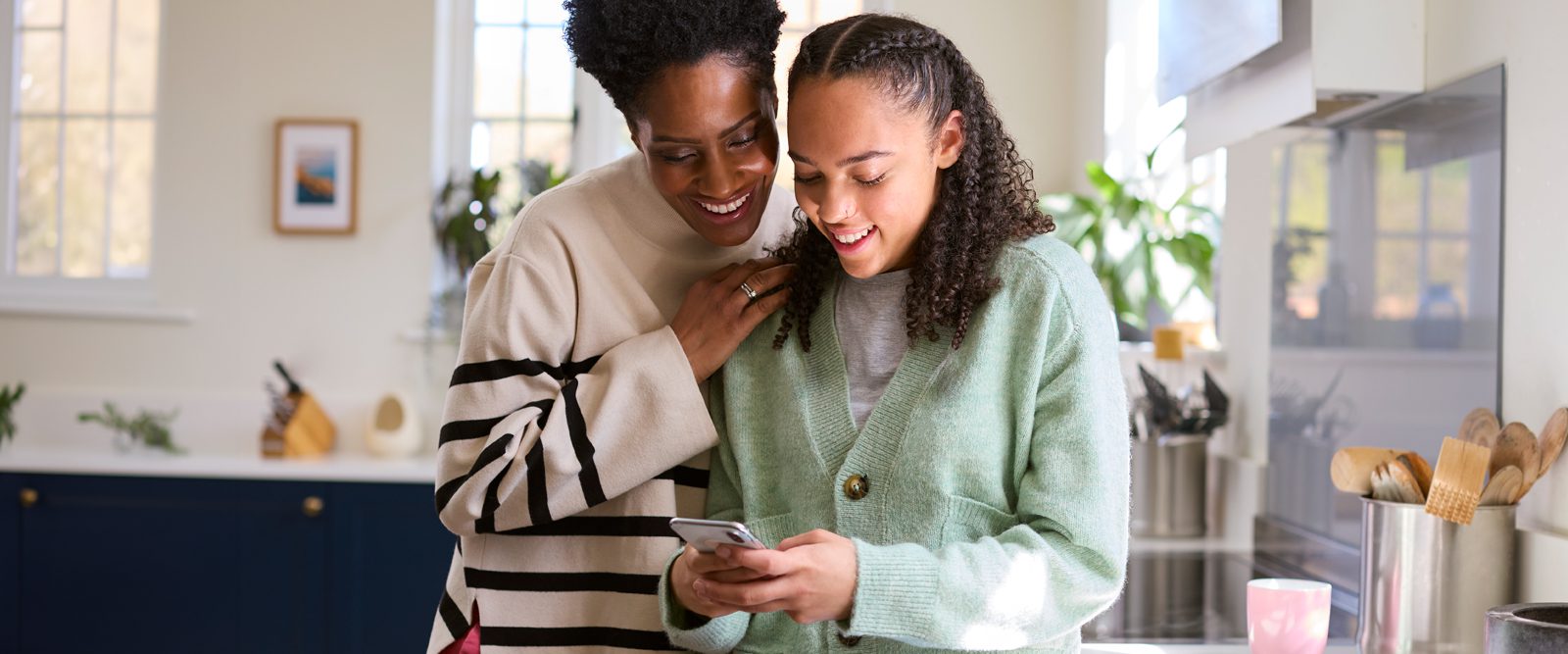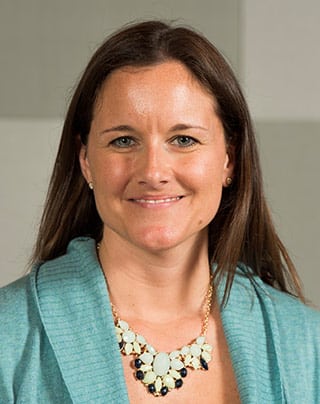Social Media and Children: How Families Can Set Boundaries and Create Healthy Habits
Two youth mental health specialists share tips on how to manage social media use and keep kids safe.

If you’re a parent, chances are you’ve had some concerns about your children interacting with social media. With organizations such as the American Psychological Association raising mental health warnings around adolescents and social media use, it’s no surprise that many caregivers are struggling to know the best ways to keep kids safe on these platforms.
It’s important to note that the impact of social media can vary greatly, depending on how you engage with it and how much. For example, it can offer benefits for isolated youth, offering them a sense of community and a way to belong and interact with friends, shares Dr. Warren Ng, a psychiatrist at New York Presbyterian and Columbia, and community health director at the Center for Youth Mental Health at NewYork-Presbyterian. However, hours of scrolling can displace important things like sleep and doing homework while exposing them to more extreme or provocative content that can lead to feelings of anxiety or poor self-esteem.

Dr. Shannon Bennett
So the question becomes: How can children, as well as adults, create healthy social media habits? The answer is rooted in open communication. “Having a shared language and frequent, open conversations when talking about social media with your kids can be helpful for parents,” says clinical psychologist Shannon Bennett, associate director of The Center for Youth Mental Health at NewYork-Presbyterian and assistant professor in Clinical Psychiatry at Weill Cornell Medicine. It’s also important for everyone to examine how their use of social media makes them feel, especially about themselves says Dr. Ng. Here, Dr. Bennett and Dr. Ng share six tips to help parents and children create boundaries that work for the entire family.
1. Understand how kids are using social media.
Children might be engaging for a variety of reasons, like to communicate with friends or to even get help with their homework, says Dr. Ng. “It’s important to have open conversations around the different apps and learn how everyone is using them. Be open, curious, and caring.” Then as a family you can have more constructive discussions around guidelines and rules that keep everyone safe.

Dr. Warren Ng
2. Use a metaphor when talking about social media.
If you’re a parent, it helps to have a relevant analogy to use when talking to kids about their social media habits. Dr. Ng shares the example of driving a car. Owning a car isn’t dangerous – just like owning a smartphone isn’t dangerous, he explains. But before you get behind the wheel, you have to understand safety, how a car works and learn the rules of the road. Similarly, you need to understand the social media landscape before engaging in it, he says.
So take the time to have deeper conversations with children about how they interact on social media and what they are using it for. The same way there are safeguards for a car, like seat belts, airbags, and speed limits to help make driving safer, you can establish measures that make social media feel safer, suggests Dr. Ng. You might want to designate safe websites, have parental monitoring, or set time limits around usage. And you can flag certain apps or sites as off-limits. “Having that framework and metaphor for discussion can really help think through your approach and come up with solutions that work,” says Dr. Ng.
3. Create a social media plan for the whole family.
It’s easy to tell someone to put down their phone. It’s harder to do it yourself. “Kids can get mixed signals related to social media and their devices,” Dr. Ng says. “Parents may be on their phones all the time, and yet they’re telling their kids not to use theirs.” To help send children a consistent message, try creating a social media plan and schedule that can work for the whole family. For example, you might try putting away phones at mealtimes, and allotting a designated hour for social media use. Then the rules about phone use can become a dialogue that involves everyone. Encourage children to ask questions about what they see on social media as some of the content are not appropriate for them.
4. Understand the algorithms.
“Parents should remember that social media is a business, and that business wants to keep people on their phones as long as possible to sell adds,” Dr. Ng says. In addition, the longer you stay on social media and engage with its content, the more concentrated or extreme that content may become.
“It’s good to help children understand how certain algorithms work,” says Dr. Bennett. For example, if you’re feeling sad and are engaging with content about depression, you might continue to be served up more content on the topic that can lead to content that may become scary or inappropriate for youth, Dr. Bennett says.
“The question then becomes, are you playing social media, or is social media playing you?” says Dr. Ng. Knowing this information can help you realize the potential bias in the content and empower you to make different choices that are good for you.
5. Talk to kids about their digital footprint.
It can be risky to believe that you’re anonymous online, Dr. Bennett says. “Believing you’re anonymous can change the way you act,” she says. “And pictures you post or send to people that you believe are private may not always be private.” Talking to children about the digital footprint their posts and comments leave behind is crucial. A momentary decision to post online can be captured forever by a screenshot. “You want to always present yourself online in the same way you would in person, and teach children to assume anyone, child or adult, can see what you say, post or share” Dr. Bennett says.
6. Reflect on how social media makes you feel.
After you put down your phone, ask yourself how you’re feeling, suggests Dr. Ng. Did your scrolling take you down a wormhole and make you feel more anxious or negative? “Think about your phone like you would a friend,” he suggests. “Ask yourself, ‘Is this relationship making me feel better about myself, or worse?’” If it’s the latter, then you can think about redefining the relationship and approaching social media in a different way. You have the power to choose who or what is in your life. “The exercise can give you greater awareness. And having that power of agency and choice is empowering and affirming,” says Dr. Ng.

